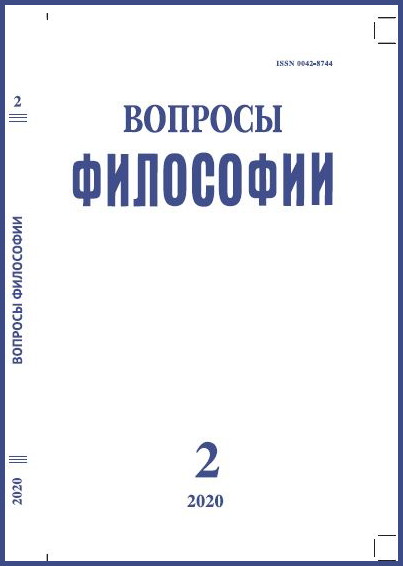Setting Off by Mail: Japanese Promise of Jacques Derrida
DOI:
https://doi.org/10.21146/0042-8744-2020-2-145-157Keywords:
Jacques Derrida, Japan, deconstruction, translation, ecriture.Abstract
An attempt to be taken in the current paper can be considered as two-way analysis of the “Japanese trace” in the philosophy ofJacques Derrida: its reception and accommodation in Japan, first, and the the matisation of Japan in it, second. Definitelyspeaking, authors objectify the circumstances among which “Letter to a Japanese Friend” was written: its form, reason,addressing. Special attention has been paid to the problem of translation of “deconstruction” into Japanese (two variants oftranslation, presented by Yura Kimiyoshi and Maruyama Keizaburo, are considered), and to the context of the first publication ofthe “Letter” (in Japanese). Also a critical view of academic and more widespread acceptation of “deconstruction philosophy” inJapan is presented. The chronology of Derrida’s meeting with Japan as “the place of thinking and writing” is traced from “TokyoOdyssey” (1984) up to the polemics with Japanese speakers at ANY-conference in Yufuin (1992). The analysis of Derridean wayof conceptualisation of Japanese (“thinking Japanese”) is based on such texts as “Ulysse gramophone”, “Faxitexture” etc. and isdealing with such concepts as “aleatory”, “insularity”, “exposition”, “adventure”, etc. Furthermore, authors are focused on the roleof promise, an answer to a call (voice) in Derrida’s intellectual biography and encourage to discover implicit but also possibleperspectives of investigation – like oriental letter-writing, which can be a part of “derridean ecriture macro-project” – as sort of apromise and productive way of thinking.

